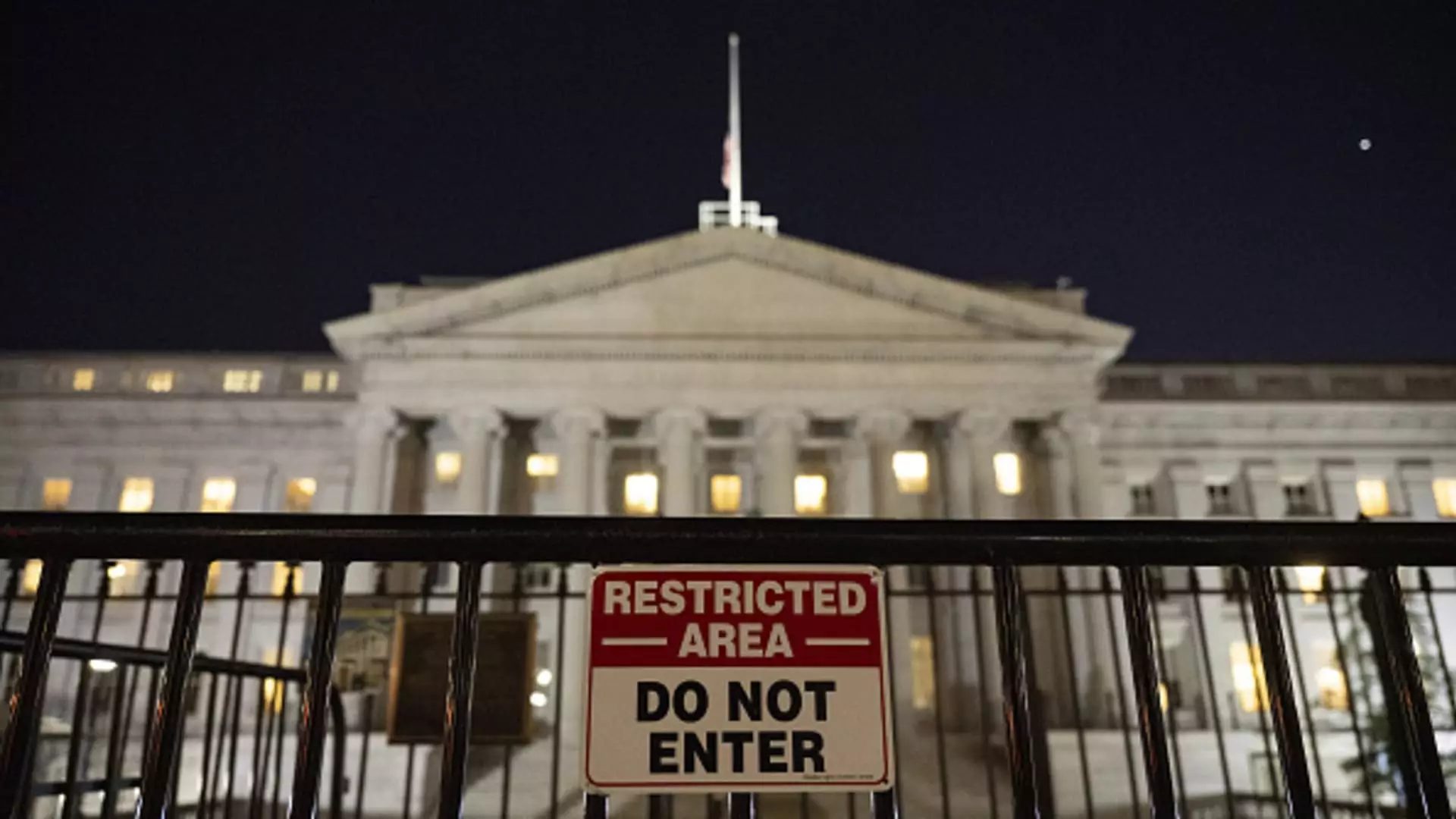Recent news has emerged regarding a significant cybersecurity breach involving the U.S. Treasury Department, specifically affecting the offices responsible for economic sanctions. According to reports from the Washington Post, Chinese government hackers infiltrated the Office of Foreign Assets Control (OFAC) and the Office of Financial Research. This breach raises critical concerns about the security measures in place to protect sensitive economic information, particularly as it pertains to the imposition of sanctions that impact Chinese entities.
The incident was acknowledged by the Treasury in correspondence to lawmakers, revealing that unclassified documents were pilfered during what has been described as a “major incident.” While the Treasury did not specify the exact users or departments that were compromised, the implications of such a breach are profound. Analysts speculate that the hackers’ primary aim was to gather intelligence on potential targets for future sanctions, an area that remains pivotal in U.S.-China relations.
The Chinese Embassy in Washington rejected the allegations as unfounded, describing the U.S. claims as “irrational” and emblematic of “smear attacks” against China. This response highlights the ongoing tensions and the differing narratives surrounding cybersecurity incidents, showcasing how such events can exacerbate diplomatic relations between nations.
Cyberattacks are becoming an increasingly common tool in international relations, allowing states to engage in espionage or disrupt the operations of their adversaries while maintaining plausible deniability. In the case of Chinese cyber activities, this breach underscores a broader strategy of gathering intelligence on U.S. policy decisions, particularly those linked to foreign sanctions that impact China’s economic interests.
Moreover, the involvement of cybersecurity service provider BeyondTrust in the breach raises questions about the robustness of third-party cybersecurity protocols. The dependence on external vendors for security measures can often create vulnerabilities that skilled hackers can exploit, as is the case here. This incident serves as a clarion call for organizations within the government sector to reevaluate their cybersecurity frameworks and ensure that all partners adhere to stringent security standards.
Implications for U.S.-China Relations
The economic relationship between the U.S. and China is fraught with complexity, and incidents like this intensify scrutiny on both sides. The U.S. has long utilized sanctions as a key instrument in its foreign policy aimed at curbing various Chinese practices deemed harmful to global economic stability. Following the reported breach, there are increasing calls for transparency and improved measures to protect sensitive governmental data from foreign intervention.
As Treasury Secretary Janet Yellen navigates this intricate landscape, the potential for new sanctions against Chinese banks as a tactic to diminish Russian oil revenue further complicates the situation. Such actions could not only deepen economic rifts but also provoke retaliatory measures from China, escalating the stakes in an already tense bilateral relationship.
This incident emphasizes the urgent need for enhanced cybersecurity measures across government departments and private sectors. As economic and geopolitical tensions grow, the U.S. must prioritize securing its sensitive information to preempt further challenges from foreign adversaries. The ramifications of this breach extend beyond immediate data loss, foreshadowing a future where cybersecurity will be a pivotal component of diplomatic strategy, economic policy, and national security.

